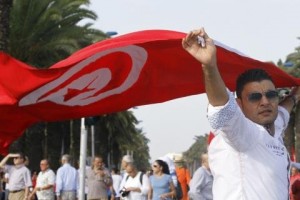Al Jazeera
This is a country that inspired the Arab Spring in 2011. Thousands of disgruntled youths took to the streets denouncing government oppression. Their call for freedom soon galvanised the Arab world and in months four Arab leaders were deposed. It was seismic event.
For many it was the Arab Spring, for skeptics it was the era of Islamists and anarchy.
I have been to Tunisia many times. I have seen in the faces of people fresh hopes for a country that will break away with autocratic rule, provides job opportunities and reforms its declining economy.
But I have also seen those hopes dashed by the rise in violence, political bickering, the deepening divide between the conservatives and the seculars.
In 2013 two prominent opposition leaders, Chokri Belaid and Mohamed Brahmi, were killed by armed men affiliated with Ansar al-Sharia, a group that was designated by the government as a terrorist organisation.
The assassinations sparked widespread protests, the ruling coalition led by the Ennahda party was blamed for being inefficient and too lenient toward radical groups.
Tunisia’s nascent democracy was at stake and the coalition faced two options – negotiate a deal or the country disintegrates.
The Ennahda-led coalition stepped down and a caretaker government was formed. A constitution was drafted and an election date was set.
The party says it resigned to save Tunisia. But it was obvious it was struggling for survival. It was worried that a protracted political crisis might pave the way for the army to seize power.
Months earlier, the army in Egypt toppled Mohamed Morsi from the presidency and sent most of the Muslim Brotherhood leadership to jail. Libyan factions were fighting for power and Yemen was facing a sectarian divide.
The sentiment among Tunisians was that their country was the cradle of the Arab Spring and if it fails, democracy will fail.
On Sunday millions will cast their vote not only to chose a new parliament but more importantly to ensure a smooth and a peaceful transition to democracy.
I remember asking a taxi driver in 2013 whether Tunisia was better off without the former president Ben Ali.
He said: “No it’s worse. I wish he is reinstated.”
It didn’t surprise me. Back then Tunisia was facing its worst political crisis and there was no light at the end of the tunnel.
For many people security and stability are way more important than democracy, especially if democracy comes with uncertainty.
Well, on Sunday October 26 Tunisians will decide. And the world is waiting to see if Tunisians will inspire the region once again, like they did in 2011.








